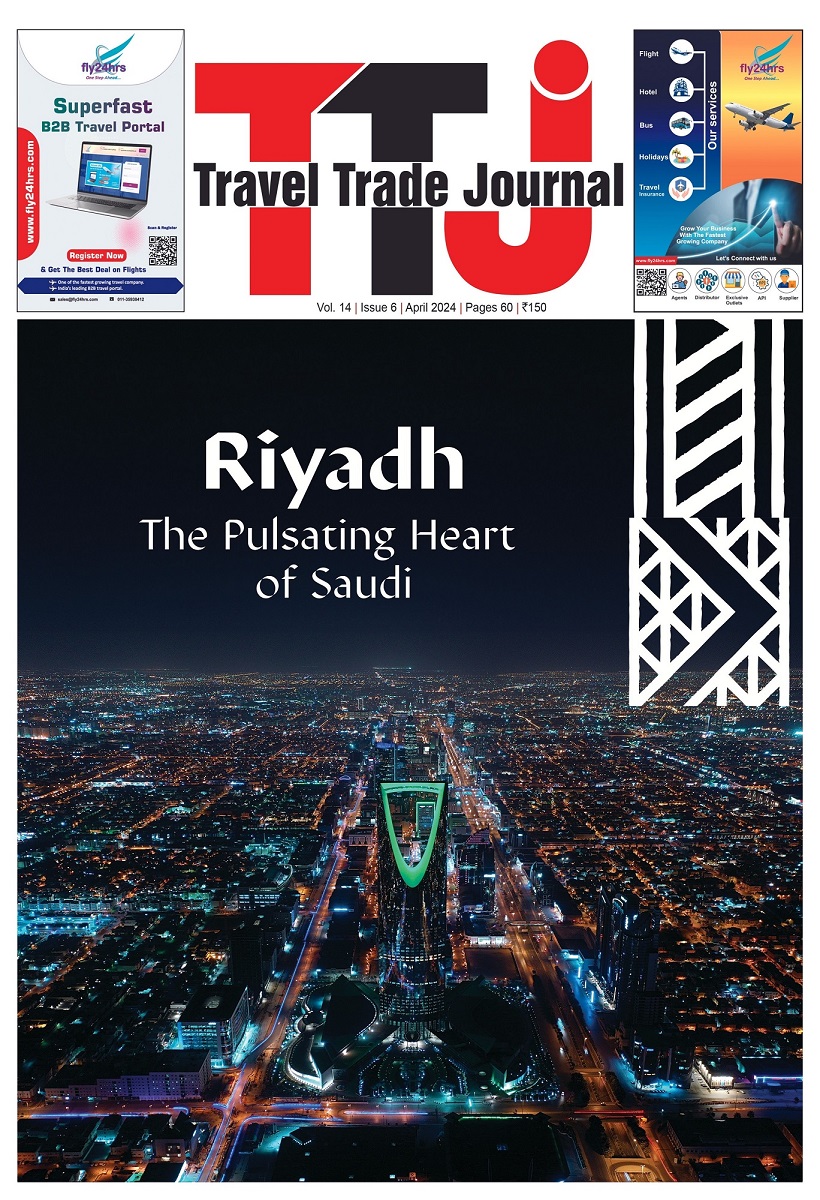The recent updates to Schengen visa regulations by the European Union (EU) have sparked a wave of optimism within the travel industry, especially among Indian travellers. The alterations are poised to foster greater enthusiasm and encourage more frequent travel among experienced travellers, particularly those with a penchant for exploring the continent. Despite the immediate challenges like visa appointment logistics and waiting times, industry insiders are buoyed by the prospect of promising advancements in the European travel landscape.
– Prashant Nayak
As of April 18, 2024, the European Commission has introduced new regulations governing the issuance of multiple entry visas to Indian nationals. These rules are notably more advantageous compared to the standard regulations outlined in the Visa Code that were previously prevalent. According to the newly adopted visa “cascade” regime for India, Indian nationals can now be issued long-term, multi-entry Schengen visas valid for two years after having obtained and lawfully used two visas within the previous three years. The two-year visa will normally be followed by a five-year visa if the passport has sufficient validity remaining. During the validity period of these visas, holders enjoy travel rights equivalent to those of visa-free nationals.
Currently, the enduring problem of extended wait times and appointment delays for Schengen visas continues to vex many Indian travellers, leading to significant frustration. Travellers who begin their visa application process as early as March encounter difficulties securing visa appointment slots, with wait times extending from two to three months and even six months in few cases. This delay is exasperating for them, as it affects their travel plans. Even with all the necessary documents, travellers are struggling to secure a visa appointment.
While these changes that have come into effect are perceived as “favourable” by the industry, many have noted that they may not yield immediate benefits for those eagerly anticipating European travel. However, this decision comes in the context of strengthened relations under the EU-India Common Agenda on Migration and Mobility, which seeks comprehensive cooperation on migration policy between the EU and India, with the facilitation of people-to-people contacts being a key aspect due to the importance of India as a partner for the EU.
Schengen visas offer holders the freedom to travel within the Schengen area for short stays, capped at a maximum of 90 days within any 180-day period. These visas are versatile and not tied to a specific purpose. Also, it is important to note that they do not confer the right to work within the Schengen area.
The Schengen area consists of 29 European countries (of which 25 are EU states): Belgium, Bulgaria, Croatia, Czech Republic, Denmark, Germany, Estonia, Greece, Spain, France, Italy, Latvia, Lithuania, Luxembourg, Hungary, Malta, the Netherlands, Austria, Poland, Portugal, Romania, Slovenia, Slovakia, Finland, and Sweden, along with Iceland, Liechtenstein, Norway, and Switzerland.
Industry Insights and Reactions
Ajay Prakash, President, TAFI

The recent news reports about long-term Schengen visas have created a buzz among travellers and agents alike. This is a welcome move and, frankly, was long overdue. Outbound travel from India is increasing exponentially, and the world is wooing the Indian tourist. Many countries have adopted a visa-free or visa-on-arrival procedure, and it was high time that the Schengen countries altered their attitude. Unfortunately, the continuing logjam and backlog of scheduling visa appointments is still a stumbling block, as are the irrational procedures at certain consulates. For instance, some require separate email addresses for each applicant, even when members of the same family are traveling together! We hope that these issues can be addressed at the earliest and that there is consistency in procedures across the various consulates so that Indian travellers can fully take advantage of the liberalised visa regime.
Rajan Dua, Co-Founder and Managing Director, Udaan India

While reports have surfaced regarding Indians’ eligibility for long-term Schengen visas, we have yet to receive official confirmation from any of the embassies. However, it is important to highlight that long-term visas are indeed issued to eligible Indian applicants who demonstrate genuine intent for Schengen entries through legitimate channels without resorting to visa shopping practices. It is worth noting that the visa fee for Schengen visas remains consistent, regardless of the duration—six months or an extended period.
Samina Munshi, Director, N Chirag Travels

The recent updates to the Schengen Visa process have sparked significant excitement and relief in the market. Previously, many travellers hesitated to apply for Schengen visas due to perceived complexities such as appointment scheduling issues and processing delays. However, recent developments reflect a shift in approach, with authorities acknowledging the expanding market and the commendable track record of travellers. The new process notably emphasises transparency and lawful visa usage. Travellers who have adhered to visa regulations in the past may now qualify for extended validity visas, such as two-year or five-year visas. This newfound flexibility is poised to greatly benefit frequent travellers and is expected to catalyse a significant boom in the travel industry.
Nishant Pitti, CEO and Co-Founder, EaseMyTrip

The recent changes in Schengen Visa regulations herald a promising era for the travel industry, especially outbound travel from India. The introduction of multi-year visas has resulted in a 10–12 per cent surge in interest among Indian travellers on our platform. France, Greece, Switzerland, Italy, and Germany stand as the most preferred destinations, witnessing heightened inquiries and searches. Moreover, emerging destinations like the Czech Republic and Poland are capturing attention. With the newfound flexibility, Indian tourists are poised to embark on enriching journeys, fostering stronger cultural connections. The ability to make multiple visits further amplifies the allure of European exploration, promising enduring engagement and camaraderie.
Dhrupen Shah, Founder, TravelSukha and TS Visa Services

The introduction of long-term visas indeed signals a promising shift, aligning with the growing interest among Indian travellers in exploring international destinations. Addressing the practical challenges, such as visa appointment backlogs and procedural inconsistencies, will be crucial to maximising the benefits of this liberalised visa regime. Moreover, the extended validity of Schengen visas opens up avenues for enhanced business engagements and cultural exchanges, further enriching the travel experience.
Bharatt Malik, Senior VP, Air and Hotel Business, Yatra Online Ltd
Granting Indian nationals the opportunity for multiple-entry Schengen visas with extended validity is a gateway not just for travel but for fostering deeper connections and opportunities. While the ripple effect may not be seen immediately for B2C travel, a positive impact lies within the corporate realm. For travellers visiting Schengen countries, this promising development will ensure smoother travel experiences for people engaging in businesses.
















































